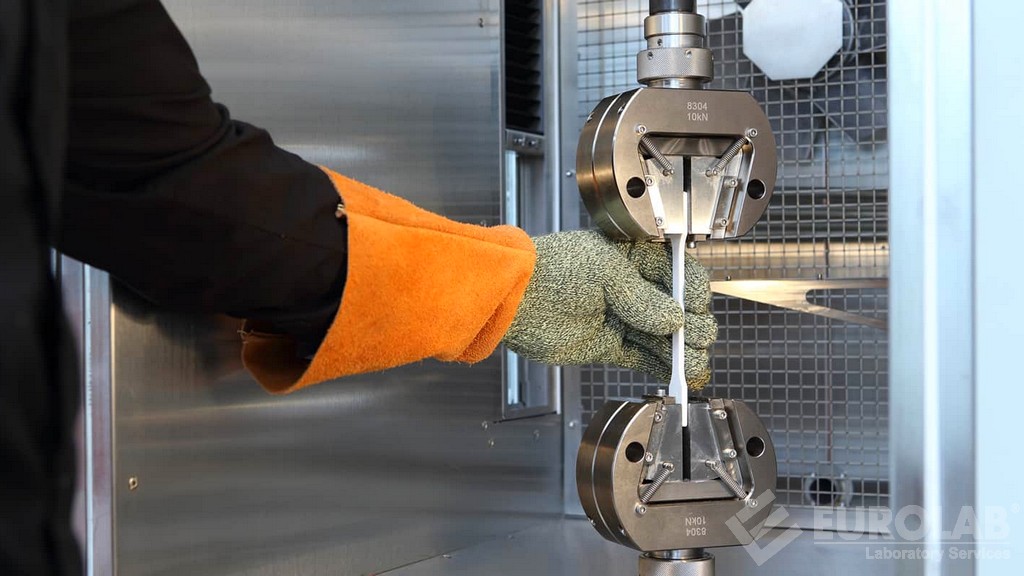API RP 45 Biocide Compatibility Testing
The American Petroleum Institute Recommended Practice (API RP) 45, titled "Compatibility of Water Treatment Chemicals with Oilfield Equipment," is a critical standard for the oil and gas sector. This practice ensures that water treatment chemicals used in oil production do not react unfavorably with the materials and equipment used in production processes.
The biocide compatibility testing under API RP 45 aims to determine whether the chemical additives, especially biocides, are compatible with metallic components of oilfield equipment. This is essential because biocides are widely used to inhibit microbial growth within the water treatment systems. Incompatible chemicals can cause corrosion, fouling, or even complete failure of equipment, leading to significant operational disruptions and increased costs.
The testing process involves exposing the chemical under test (CUT) in a controlled environment to metallic coupons representing different materials commonly used in oilfield equipment. The specimens are then subjected to various environmental conditions that mimic real-world scenarios found during production processes. This includes exposure to elevated temperatures, pressure changes, and varying levels of salinity.
Once the testing is complete, the samples undergo visual inspection for any signs of corrosion or fouling. Additionally, non-destructive testing (NDT) techniques such as ultrasonic testing or radiography may be employed where necessary. The results are compared against established criteria to determine if the biocide is compatible with the specified materials.
Understanding API RP 45 helps ensure that chemical additives used in oilfield operations meet stringent standards for compatibility, thereby extending equipment life and enhancing operational efficiency. This testing is a key component of quality management and compliance programs within the industry.
Industry Applications
- Oilfield Water Treatment
- Metallic Equipment Protection
- Production Chemical Formulation
| Application | Description |
|---|---|
| Oilfield Water Treatment | Ensures that water treatment chemicals used in oil production do not react unfavorably with the equipment. |
| Metallic Equipment Protection | Prevents corrosion and fouling, thus extending the life of metallic components. |
| Production Chemical Formulation | Aids in formulating biocides that are safe for use without causing degradation or failure of equipment. |
Why It Matters
The importance of API RP 45 cannot be overstated, especially in the context of oil and gas exploration. Incompatible biocides can lead to severe operational issues such as equipment failure, increased maintenance costs, and potential safety hazards.
By ensuring that biocides are compatible with metallic components, companies can avoid costly downtime and repairs. This not only enhances operational efficiency but also contributes significantly to environmental sustainability by reducing waste generation and resource consumption.
The compatibility testing under API RP 45 is a crucial step in the development of production chemicals. It ensures that the biocides used are safe for their intended purpose without causing adverse effects on equipment or the environment. This practice aligns with broader industry efforts to promote sustainable practices and reduce operational risks.
Applied Standards
The testing for biocide compatibility under API RP 45 is guided by several international standards, including ISO (International Organization for Standardization), ASTM (American Society for Testing and Materials), and EN (European Norms). Compliance with these standards ensures that the tests are conducted in a consistent and reliable manner.
- API RP 45: Compatibility of Water Treatment Chemicals with Oilfield Equipment
- ISO 12937-1 & ISO 12937-2: Metallic Materials — Corrosion Prevention by Protective Organic Coatings
- ASTM G112: Standard Practice for Conducting and Reporting Biocidal Activity Testing of Water Treatment Chemicals





